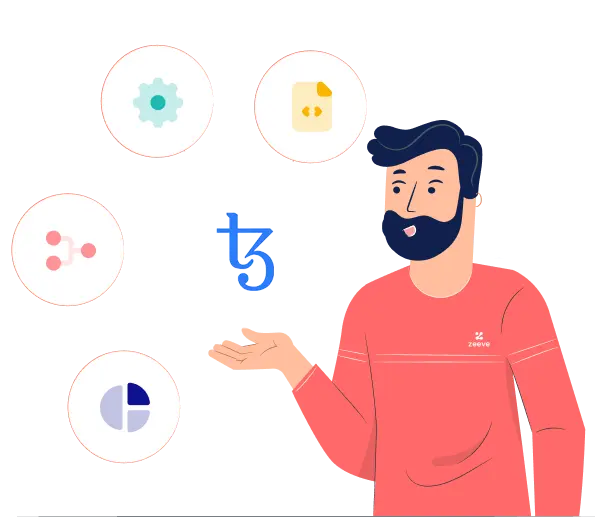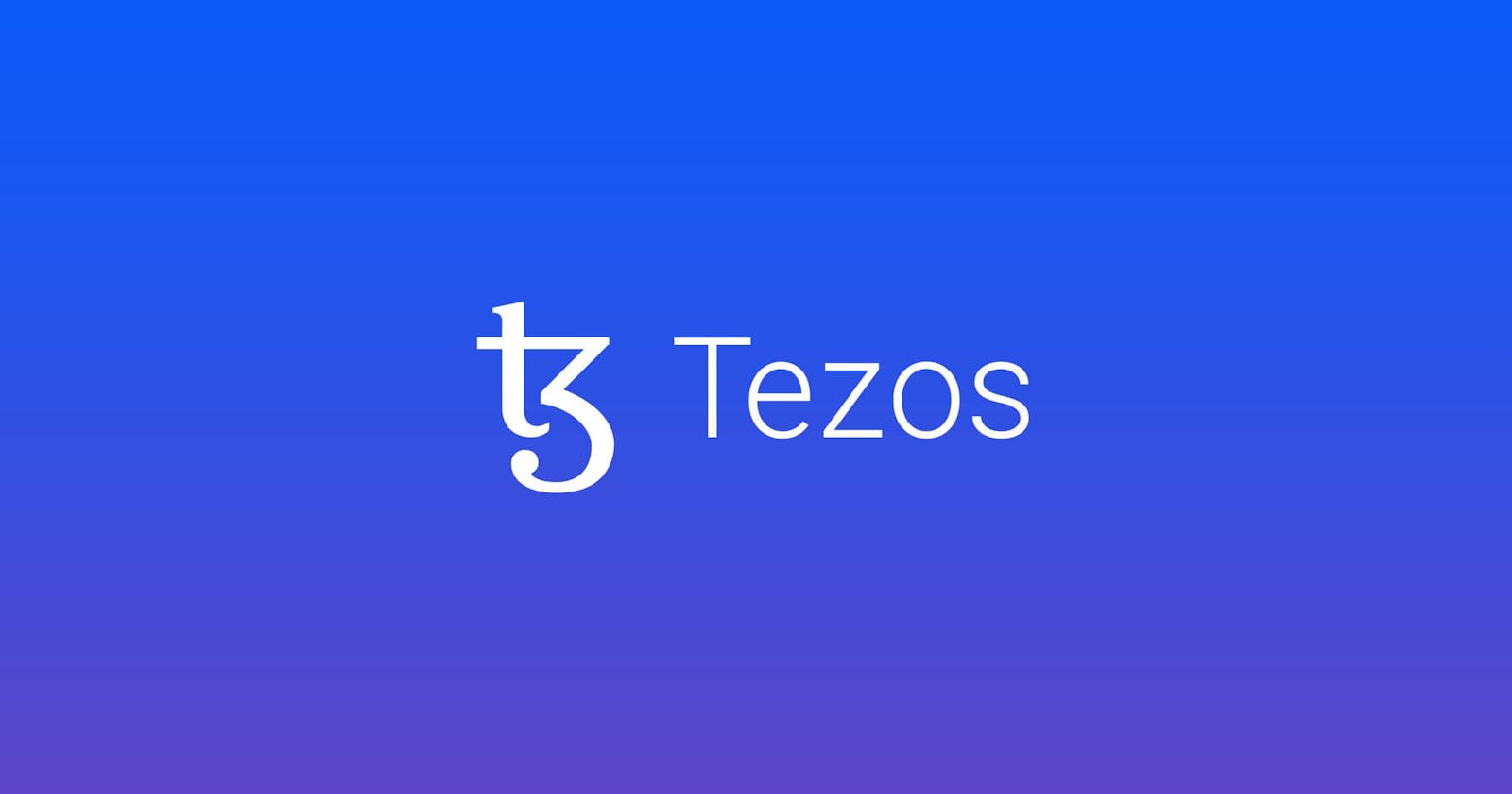Discover the power of Tezos token standards. From FA1.2 to FA2.0 and beyond, these standards are revolutionizing the world of tokenization. Join me as we explore the intricacies of Tezos' cutting-edge technology, unraveling the possibilities and advantages they offer. Get ready to embark on a journey that will transform your understanding of blockchain-based assets. Welcome to the realm of Tezos token standards, where innovation knows no bounds.
Tezos - Unraveling Its Features and Uniqueness
Introduction to Tezos:
Tezos, the blockchain trailblazer, has gained significant attention for its unique features and capabilities. Unlike traditional blockchains, Tezos incorporates a self-amendment mechanism, enabling the network to evolve and upgrade seamlessly without requiring hard forks. This on-chain governance approach empowers token holders to actively participate in decision-making, making Tezos a truly decentralized and democratic platform.
Tezos' Unique Features:
Tezos stands out with its innovative features that contribute to its success and popularity. One of its key features is the Liquid Proof-of-Stake (LPoS) consensus algorithm, which ensures a fair and secure network by allowing token holders to delegate their stake to validators of their choice. This design encourages decentralization and mitigates the energy consumption associated with other consensus mechanisms.
On-Chain Governance and Upgrades:
Tezos pioneers the concept of on-chain governance, where token holders actively participate in shaping the future of the platform. Through a formalized voting process, stakeholders can propose and vote on protocol upgrades and amendments. This inclusive decision-making mechanism ensures that the platform adapts to the evolving needs of its community, fostering innovation and avoiding contentious hard forks.
Moreover, Tezos employs a unique smart contract language called Michelson. Michelson is designed with formal verification in mind, allowing developers to rigorously verify the correctness of their smart contracts. This approach enhances the security and reliability of applications built on Tezos, reducing the risk of vulnerabilities and exploits.
Token Standards on Tezos

Importance of Token Standards:
Token standards play a pivotal role in blockchain ecosystems, providing a common framework for creating, managing, and exchanging digital assets. They define the rules and functionalities that tokens must adhere to, ensuring interoperability and facilitating seamless integration across various applications and platforms. Token standards enable developers to focus on innovation and create diverse tokenized assets while ensuring compatibility and usability.
Overview of Tezos Token Standards:
Tezos boasts a range of token standards that cater to different use cases and requirements. These standards define the structure, behavior, and functionalities of tokens on the Tezos blockchain. Let's explore some of the notable token standards on Tezos:
TZIP-7: A Foundational Token Standard
TZIP-7 was one of the earliest token standards proposed on Tezos. It focuses on fungible token implementation, allowing for the creation and transfer of interchangeable tokens. TZIP-7 provides a foundational framework for basic tokenization needs.
TZIP-12: Advancing Tokenization on Tezos
TZIP-12 is an advanced token standard that builds upon the foundation set by TZIP-7. It introduces additional features and improvements, such as optional metadata support, batch transfers for efficient token movements, and optimized storage costs. TZIP-12 expands the capabilities of tokenization on Tezos and enhances user experience.
TZIP-16: NFT Standardization on Tezos
TZIP-16 is a proposal specifically designed for non-fungible tokens (NFTs) on Tezos. It outlines guidelines for the creation and management of unique and indivisible assets, such as digital collectibles, art, and tokenized representations of real-world assets. TZIP-16 standardizes the metadata format and introduces features like royalties to empower creators and collectors in the NFT space.
TZIP-21: Flexibility in Token Transfers
TZIP-21 focuses on providing flexible permissions and custom transfer conditions for tokens on Tezos. It enables token contracts to enforce rules on transfers, such as whitelisted addresses, time-based restrictions, or custom conditions. TZIP-21 offers increased control and governance over token transfers, enabling innovative use cases like restricted access tokens or conditional transfers.
Token standards on Tezos provide a solid foundation for creating and managing digital assets on the blockchain. From the foundational TZIP-7 to the advanced capabilities of TZIP-12, TZIP-16, and TZIP-21, Tezos offers a range of standards that cater to diverse tokenization requirements.
By embracing these standards, developers can unlock the potential of tokenization on Tezos, creating innovative applications, digital assets, and ecosystems that redefine industries and empower users. In the following sections, we will delve deeper into the FA1.2 and FA2.0 token standards, showcasing their unique features and advantages in enabling powerful tokenization capabilities on Tezos.
The Evolution of Tezos Tokens: FA1.2 to FA2.0
FA1.2 Token Standard:
The FA1.2 token standard on Tezos is a simple standard designed for fungible tokens. It provides a basic framework for creating, transferring, and managing tokens on the Tezos blockchain. FA1.2 allows developers to tokenize assets such as currencies, loyalty points, or in-game items.
The FA1.2 standard offers essential functionalities, including token creation, balance tracking, and transfer operations. It ensures that tokens adhere to a consistent structure and behavior, enabling compatibility across various applications and wallets. This simplicity makes FA1.2 a suitable choice for projects with straightforward tokenization requirements
FA2.0 Token Standard:
Building upon the foundation of FA1.2, the FA2.0 token standard introduces advanced features and greater flexibility. FA2.0 is designed to support both fungible and non-fungible tokens, expanding the range of tokenization possibilities on Tezos.
One of the key advantages of FA2.0 is its support for multiple token types within a single smart contract. This means that developers can manage a variety of tokens within a unified system, streamlining operations and reducing deployment and maintenance costs.
Whether it's managing different currencies, NFT collections, or unique tokenized assets, FA2.0 provides a comprehensive solution.
FA2.0 also introduces customizable entry points, which allow developers to define specific functions and operations for their tokens. This flexibility enables developers to incorporate unique business logic and custom behaviors into their token contracts.
For example, developers can implement features such as token burning, token freezing, or special voting rights directly into the token contract itself.
By supporting a wide range of token types, customizable entry points, and efficient batch transfers, FA2.0 opens up new avenues for complex token ecosystems on Tezos, empowering developers to build sophisticated decentralized applications.
Conclusion

Tezos is revolutionizing the world of tokenization with its range of token standards. From the foundational TZIP-7 to the specialized TZIP-16 and versatile TZIP-21, Tezos provides a comprehensive framework for creating and managing digital assets.
The FA1.2 token standard offers simplicity for fungible tokens, while the FA2.0 standard introduces advanced features and flexibility for both fungible and non-fungible tokens. FA2.0 allows developers to manage multiple token types within a unified system and customize token behaviors.
Tezos' token standards empower developers to build innovative applications and ecosystems, reshaping industries and unlocking the potential of decentralized finance. With self-amendment, on-chain governance, and scalable infrastructure, Tezos is a preferred choice for projects seeking efficient and adaptable tokenization solutions.
By leveraging the power of Tezos' token standards, developers can tap into the vast opportunities of tokenization, creating seamless digital asset experiences and revolutionizing the way assets are exchanged and managed.
Tezos is the platform where simplicity meets advancement, where innovation knows no bounds. Join the Tezos revolution and unlock the full potential of tokenization on this cutting-edge blockchain.
